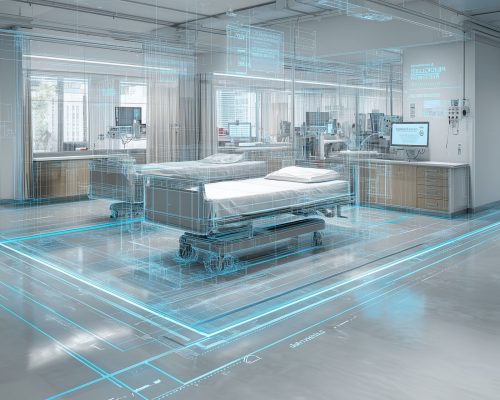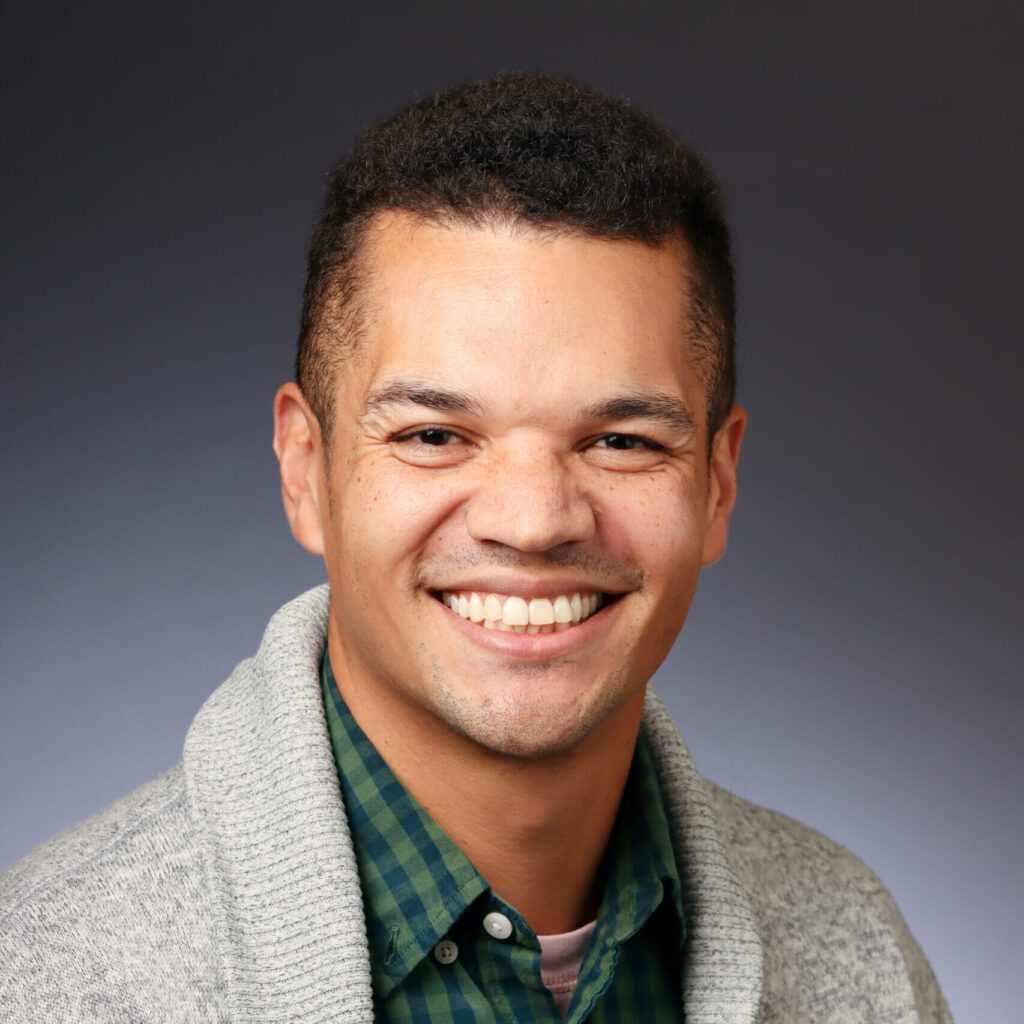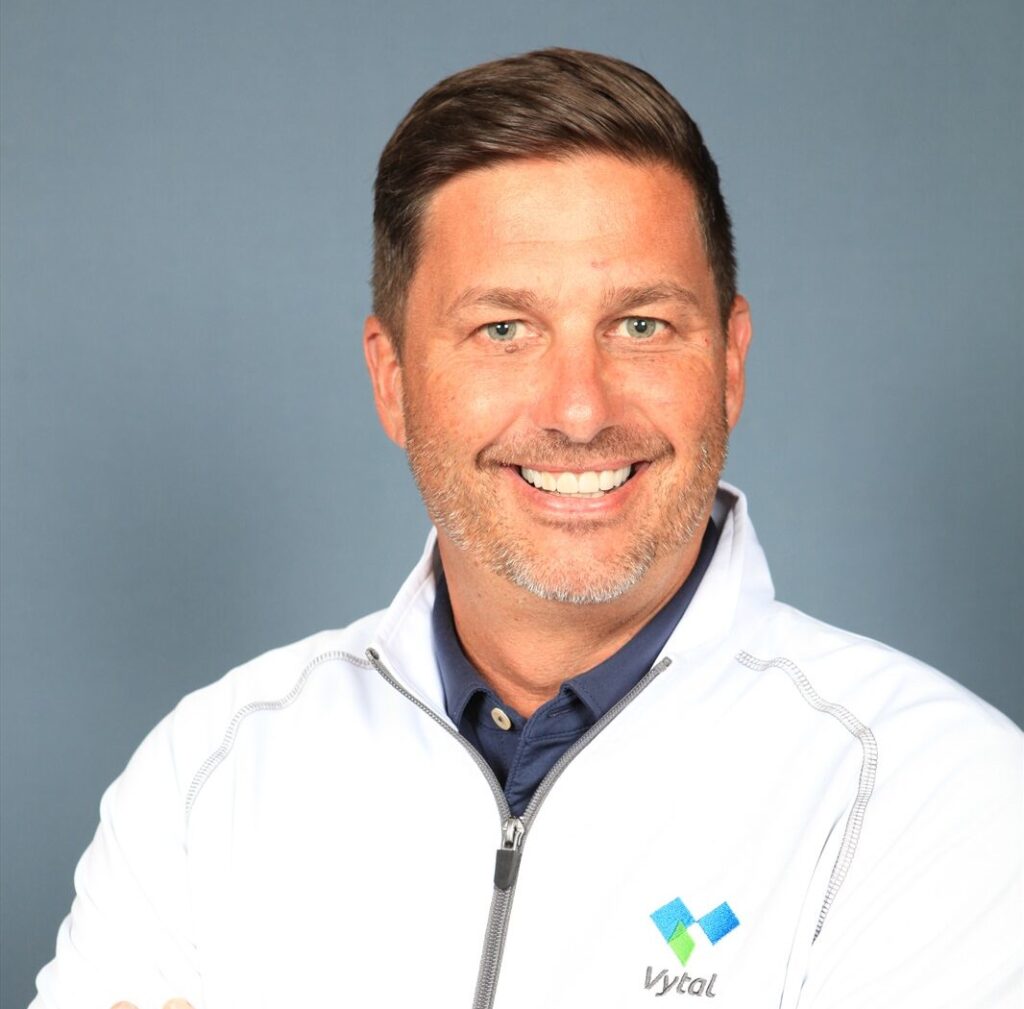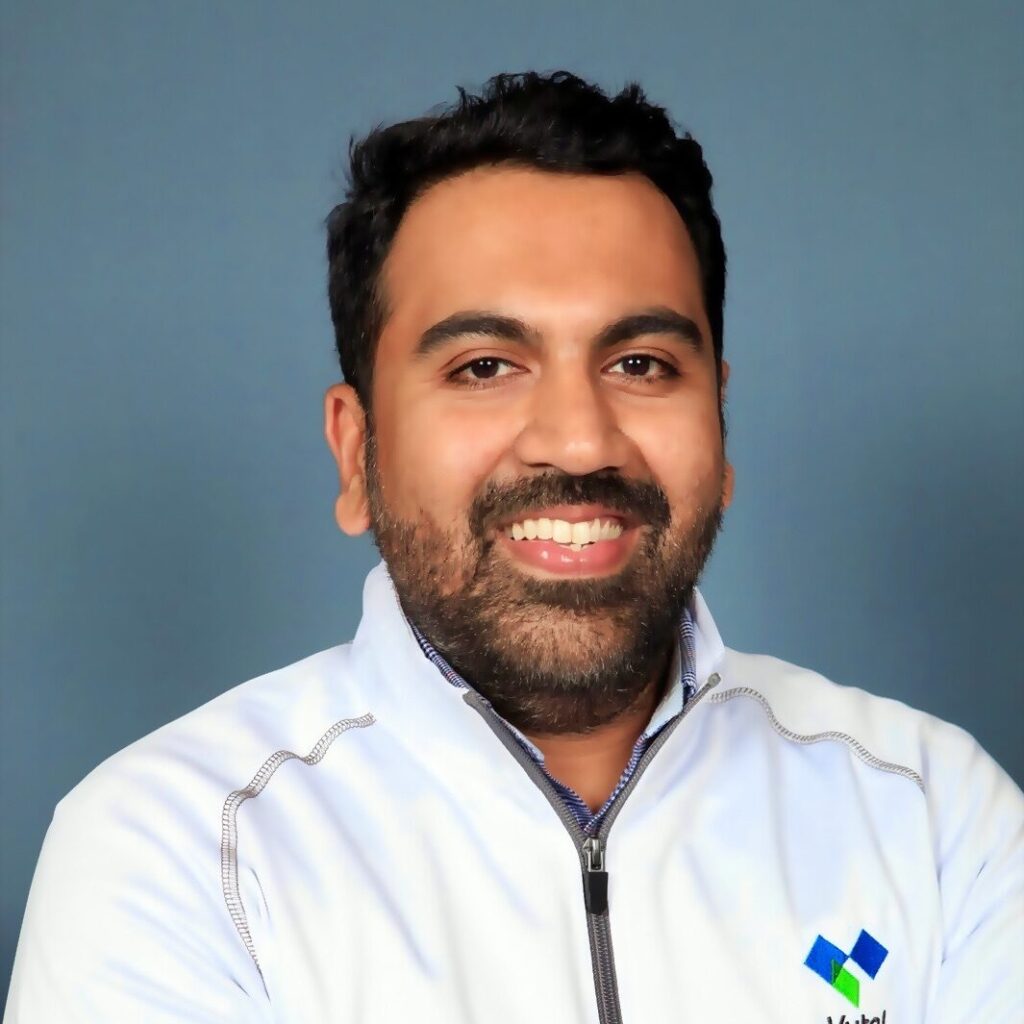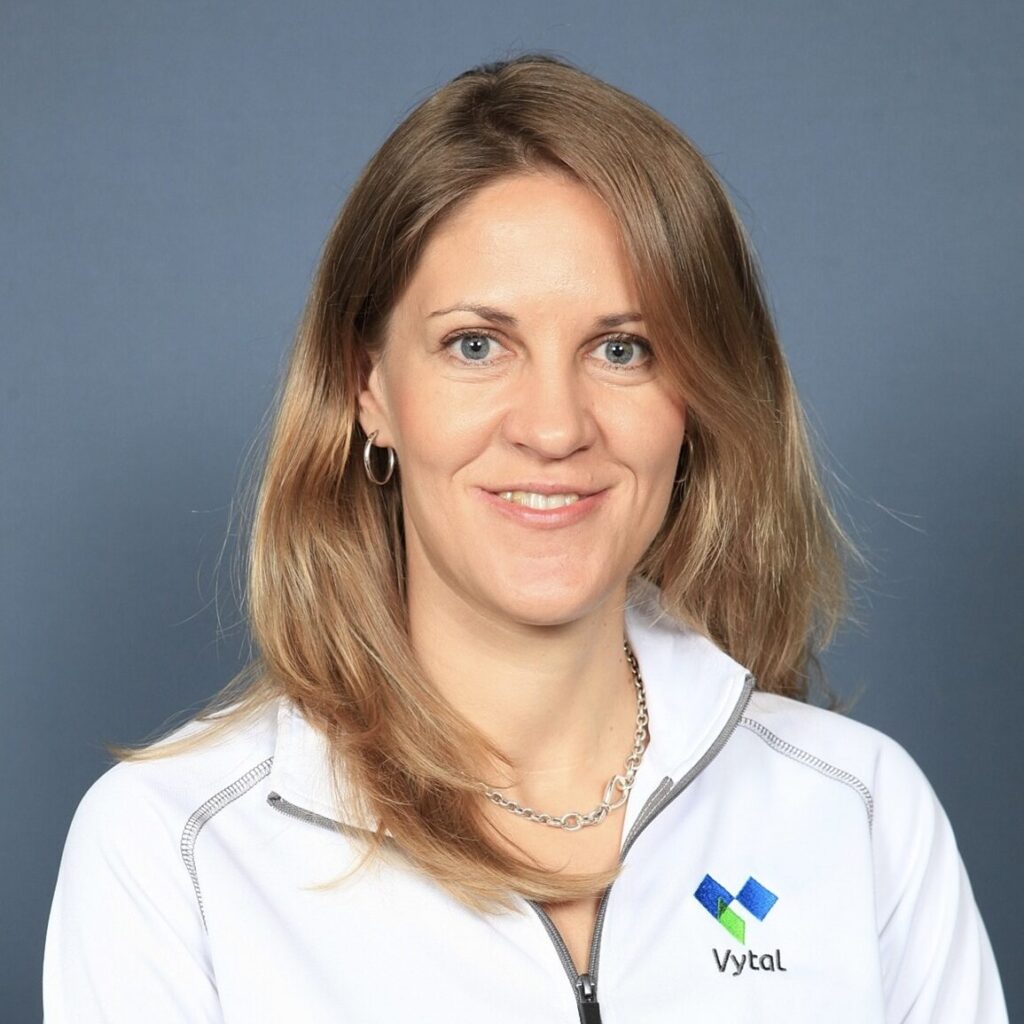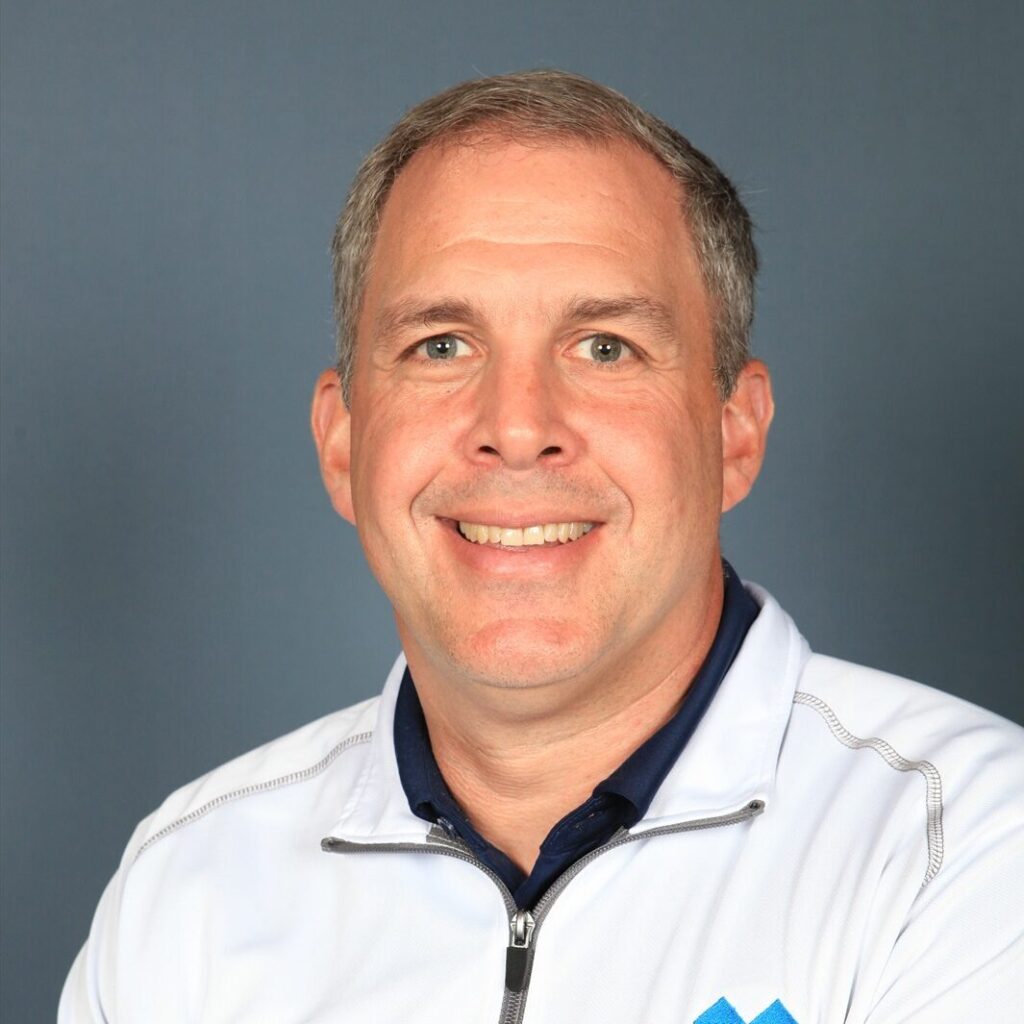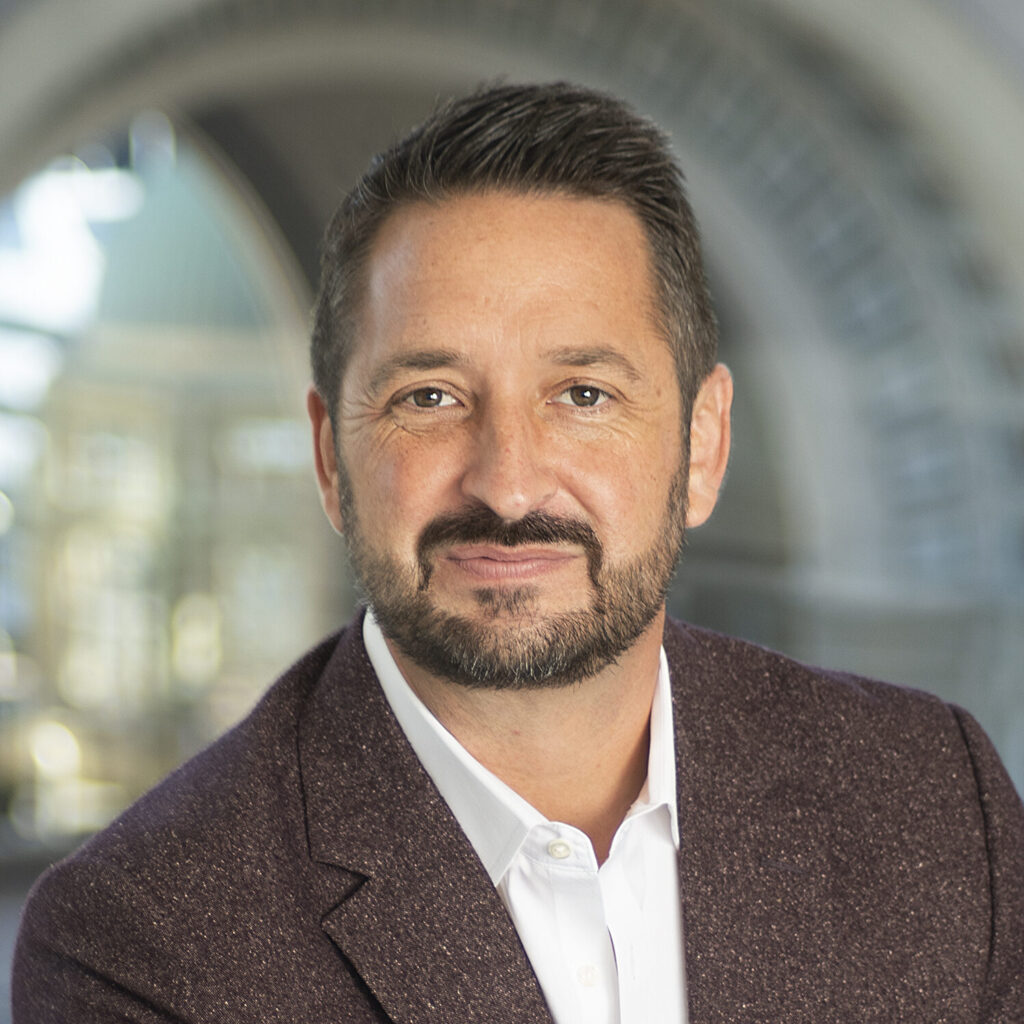
Key takeaways
- IoT and AI technologies are transforming healthcare facility management by enabling real-time monitoring, predictive maintenance, and energy optimization
- Integrating advanced sensors and blockchain enhances facility safety and data security, streamlining compliance and operational efficiency
- A purpose-built CMMS system that factors rapid technology development into its own infrastructure is critical for future-proofing healthcare facilities and enabling sustainable operations
Healthcare facility management is going through profound digital transformation. With rising patient expectations, regulatory demands, and cost pressures, adopting new technologies is has become not just an option, but a necessity for optimizing operations, reducing costs, and improving patient care.
The technology landscape continues to evolve faster and faster as the learning curve accelerates. AI continues to dominate headlines as solutions across verticals incorporate it into their workflows. Keeping track of technology trends and how they’re making an impact on healthcare facilities management can be daunting, but take a look at some of these higher-level topics to see if there are any thought-starters for your team. Ultimately, innovations like these are redefining how healthcare operations executives and facility leaders manage their facilities and assets, ensuring greater financial and operational stability.
1. CMMS: Essential for Healthcare Facility Management
The pace of change in healthcare facility management has never been faster. Technological advancements are not just improving how facilities operate but are also enhancing patient care and staff productivity. In this rapidly evolving environment, innovations like Computerized Maintenance Management Systems (CMMS) designed specifically for healthcare are playing a vital role in streamlining asset management and reducing operational costs.
Adopting these technologies is no longer optional—it’s essential. A healthcare-specific CMMS enables leaders to efficiently manage assets, comply with regulations, and improve patient outcomes. As facilities grow larger and more complex, these tools offer the clarity needed to keep up with the demands of modern healthcare management.
2. IoT Integration: Transforming Healthcare Asset Management
The Internet of Things (IoT) is revolutionizing healthcare facilities by connecting devices and systems to create smarter environments. In a healthcare setting, IoT can link medical devices, environmental control systems, and other critical assets, providing real-time data that helps optimize facility operations.
One of the most effective applications of IoT in healthcare is the use of smart sensors. These sensors continuously monitor equipment usage, room occupancy, and energy consumption. This data enables managers to make informed decisions, improving resource allocation and reducing waste.
IoT automates routine tasks such as lighting and HVAC (heating, ventilation, and air conditioning) adjustments based on room occupancy. This automation leads to energy savings, operational efficiency, and a more comfortable environment for patients and staff.
A CMMS tailored for healthcare can integrate with IoT devices to monitor asset conditions, track maintenance schedules, and predict equipment failures. This connectivity allows for proactive asset management, ensuring critical systems run smoothly and patient care is uninterrupted.
3. AI and Machine Learning: Elevating Decision-Making
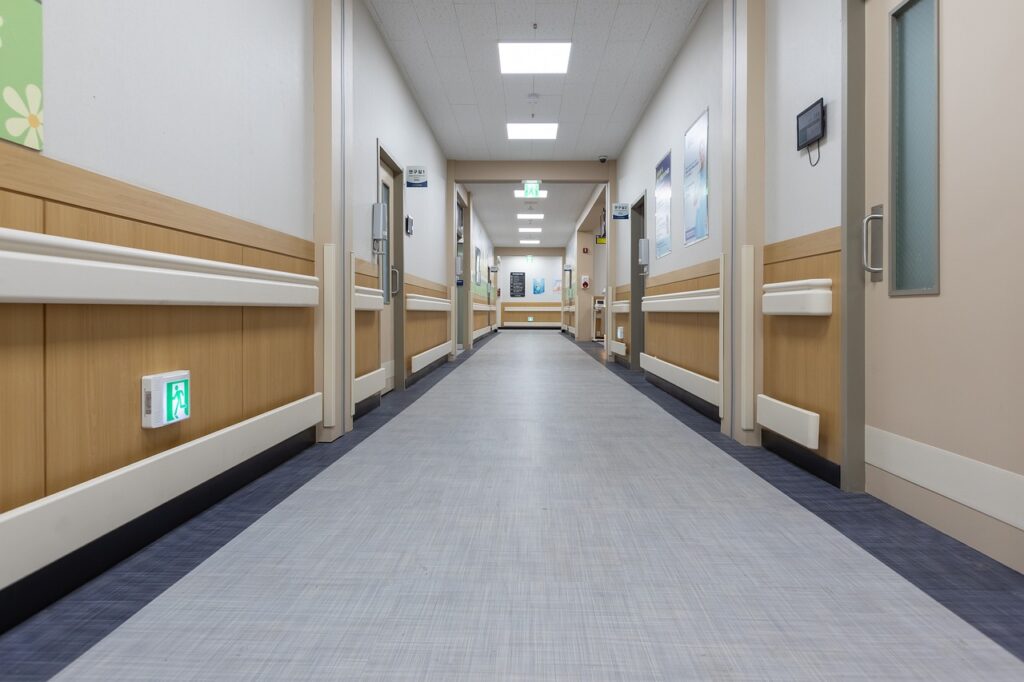
Artificial intelligence (AI) is being leveraged in healthcare facilities to analyze large datasets, providing real-time insights into operational efficiency. AI helps facility managers optimize resource use, reduce energy consumption, and improve maintenance scheduling.
Machine learning, a subset of AI, enables predictive maintenance by analyzing historical data from equipment sensors and maintenance logs. It identifies patterns that can predict equipment failures, allowing facility managers to address issues before they cause downtime.
AI’s ability to continuously learn from data improves decision-making over time. As AI systems gather more information, they provide more accurate recommendations for optimizing facility operations, reducing costs, and enhancing patient care.
Integrating AI with healthcare-specific facility management platforms, including CMMS, allows healthcare leaders to harness predictive insights. This results in better planning, resource management, and patient safety outcomes.
4. Predictive Maintenance: Proactive Healthcare Asset Management
Predictive maintenance involves using data to forecast when equipment will fail so that repairs can be scheduled before a breakdown occurs. This approach is particularly valuable in healthcare, where equipment failures can disrupt patient care and lead to costly emergency repairs.
Healthcare facilities equipped with a CMMS can collect data from equipment sensors and maintenance logs. This information allows for predictive maintenance, ensuring assets are serviced at the right time, minimizing disruptions.
Predictive maintenance reduces the likelihood of equipment failure, decreases emergency repair costs, and enhances asset life. For healthcare facilities, this means lower operational costs and uninterrupted service delivery.
5. Remote Monitoring and Telehealth: Centralized Control for Facility Management
Remote monitoring technology allows facility managers to oversee critical systems like HVAC, electrical grids, and medical equipment from a centralized location. This capability is particularly valuable for large healthcare networks that need to ensure consistent operations across multiple sites.
By monitoring systems remotely, facility managers can quickly respond to issues, reducing downtime and improving operational efficiency. This centralized approach streamlines the management of complex healthcare environments.
The growing adoption of telehealth services is changing how healthcare facilities are designed and managed. As more patients receive care remotely, facilities must adapt their infrastructure to support telehealth technologies, including enhanced connectivity and data management systems.
Remote monitoring tools integrated with CMMS platforms enable healthcare facility managers to maintain operational efficiency, even when managing facilities from afar. This capability is crucial for handling the increasing complexity of modern healthcare environments.
6. Blockchain Technology: Integration into Facility Operations and Security
Blockchain technology offers a secure, transparent way to manage sensitive healthcare data and compliance records. In healthcare facility management, blockchain can ensure the integrity of contracts, certifications, and maintenance records, reducing the risk of fraud and human error.
Blockchain can streamline administrative tasks by automating record-keeping processes, ensuring transparency, and reducing inefficiencies in regulatory compliance and asset management. Looking ahead, blockchain could play a role in tracking the lifecycle of medical equipment and improving supply chain transparency, further securing healthcare operations.
7. Energy Usage: Optimization has Become Easier
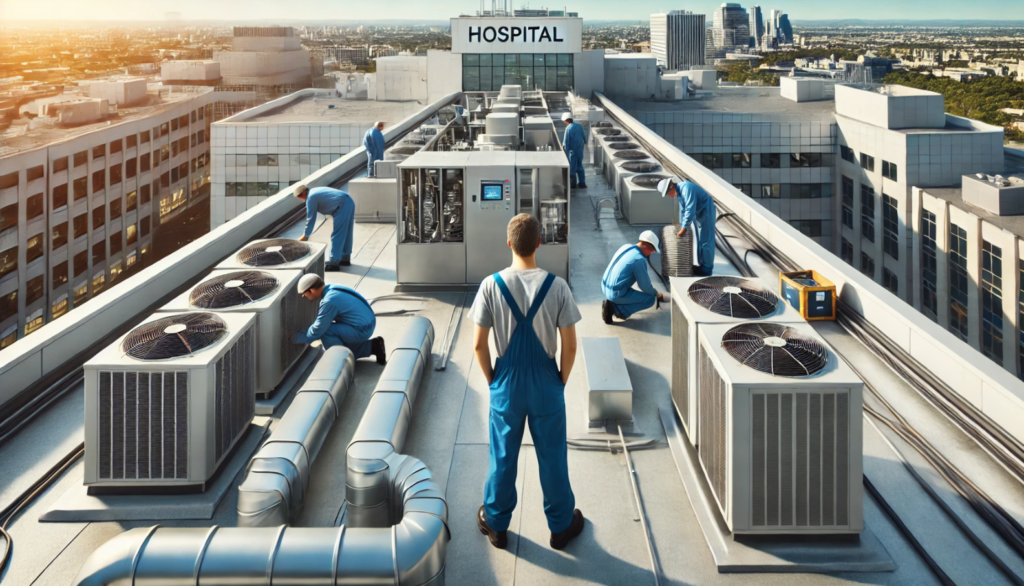
Energy optimization is a growing priority for healthcare facilities. AI and data analytics can identify areas of energy waste and suggest improvements, resulting in significant cost savings and a reduced environmental footprint.
Machine learning algorithms can predict energy demand based on historical usage patterns, allowing facilities to optimize energy consumption without compromising performance.
A CMMS platform designed for healthcare can track and manage energy usage across a facility, providing real-time insights and helping facilities achieve their sustainability goals.
8. Generative AI for Autonomous Building Operations: The Future of Healthcare Facilities
Generative AI refers to AI systems that can create new content or predictions based on input data. In healthcare facilities, generative AI can manage building operations autonomously, optimizing systems like HVAC and lighting for maximum efficiency.
Generative AI can take over the control of HVAC systems, adjusting temperature and airflow based on occupancy and environmental conditions. This leads to improved energy efficiency and reduced operational costs.
Autonomous building operations powered by generative AI can help healthcare facilities meet sustainability targets by minimizing energy use and reducing waste.
9. Enhanced Wireless Connectivity: Empowering Seamless Facility Operations
As healthcare facilities adopt hybrid work models and telemedicine, robust wireless connectivity becomes essential. Ensuring seamless communication and data sharing across facilities supports continuous, high-quality patient care.
Wireless connectivity enables real-time monitoring and management of facility operations. Facility managers must ensure that their wireless networks are robust enough to handle the increasing demands of modern healthcare technologies.
To remain competitive and effective, healthcare facilities must invest in future-proof wireless networks that can support the growing demands of IoT, AI, and remote monitoring technologies.
Adapting to the Future of Healthcare Facility Management
Incorporating these trends is a massive undertaking, and healthcare facilities leaders need to carefully assess which initiatives are feasible within their existing team and technical infrastructure.
Healthcare facilities leaders who empower their teams to improve efficiency, reduce costs, and enhance patient care will ultimately prevail, and that means applying potentially beneficial ideas to their team in meaningful ways that can be easily understood, tactfully executed, and consistently managed.
As technology continues to evolve, healthcare facilities that embrace innovation will be better equipped to meet the demands of the future. Staying informed and investing in the right tools will enable facilities to thrive in a rapidly changing healthcare landscape.
Vytal Assets has developed a purpose-built CMMS for healthcare facilities management, empowering teams to stay ahead of the game. Interested in learning more? Get started today
